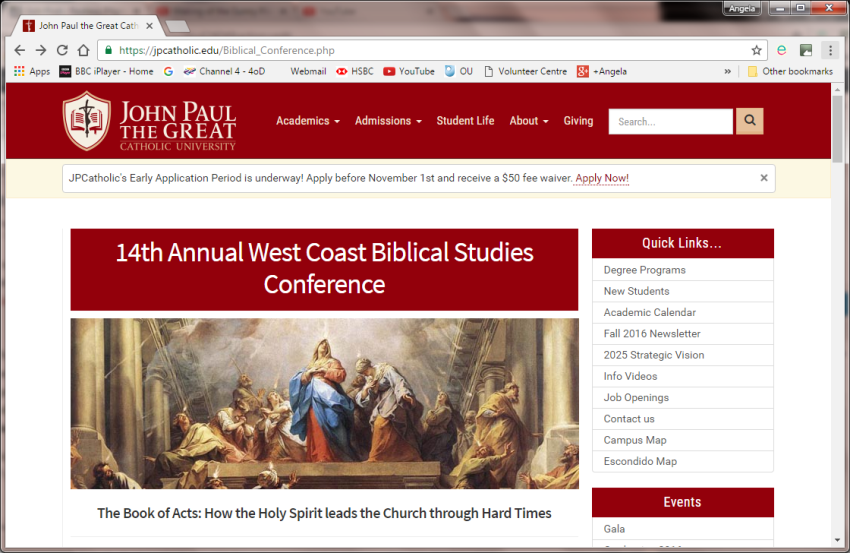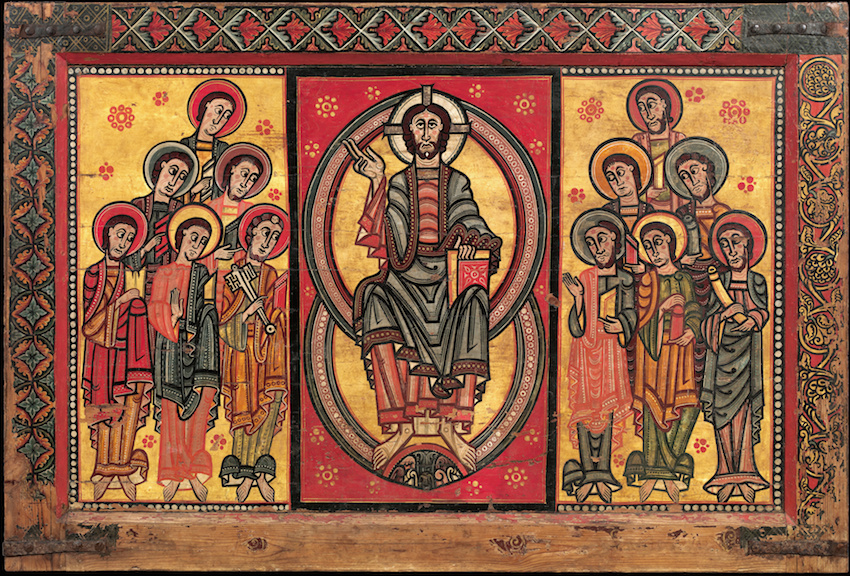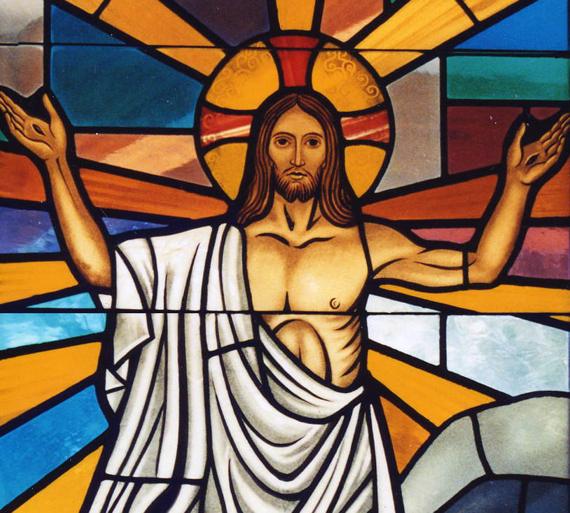A while ago I enumerated all the warm-up questions asked each week at the beginning of our Bible study group. Several people sent me messages asking me for the answers, but one reader, Alexandra, went ahead and sent me her own responses!
So, in case you were curious, over the next couple of days I’m going to be posting the answers to the questions, based upon Alexandra’s email…
1. In what language was the New Testament written?
(Koine) Greek
2. What is the likely exception to this?
The Gospel According to Mathew. The Early Church Fathers say that it was originally written in Aramaic and soon translated into Greek.
3. Which books appear first in the New Testament?
The four Gospels.
4. Why are these books placed first in the canon?
These books appear at the beginning of the New Testament because they contain the teaching, life, death and resurrection of the Lord Jesus and therefore hold pride of place in the New Testament.
5. Why do they appear in this order?
They are arranged in the order of composition as believed by Early Church Fathers.
6. Which Gospels are attributed to Apostles?
Matthew and John
7. With whom is Mark associated?
He was companion of Paul and later Peter. It is said that Mark’s Gospel is the preaching of Peter in Rome.
8. What is Mark’s other name?
Mark is also called John (Acts 12:12). We was the cause of some friction between Paul and Barnabas.
9. With whom is Luke associated?
He was a companion of Paul.
10. What is Luke’s profession?
Physician
11. What comes after the Gospels?
Acts of the Apostles
12. By whom is it written?
Luke, the author of the Gospel which bears his name.
13. To what genre does it belong?
“Acts” is a genre of books in the ancient world that described people’s great deeds. This book describes the history of the Early Church.
14. What is the first main message of the Acts of the Apostles?
The Church continues the mission of Jesus.
15. What is the second main point of the Acts of the Apostles?
The unity of the mission of Paul and Peter. There are numerous parallels between the acts and deeds of these two apostles.
16. Between what years do the events described in Acts of the Apostles take place?
Probably between about AD 30 and AD 60
I’ll post the next set of answers after lunch…
1-16 | 17-27 | 27-42 | 43-52 | 53-57 | 58-67 | 68-71 | 72-81
All Questions
The article New Testament Warm-Ups: Answers 1-16 first appeared on RestlessPilrim.net






 This Sunday we hear a glorious mystery! The
This Sunday we hear a glorious mystery! The 
